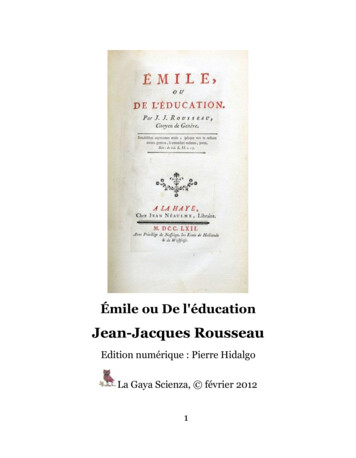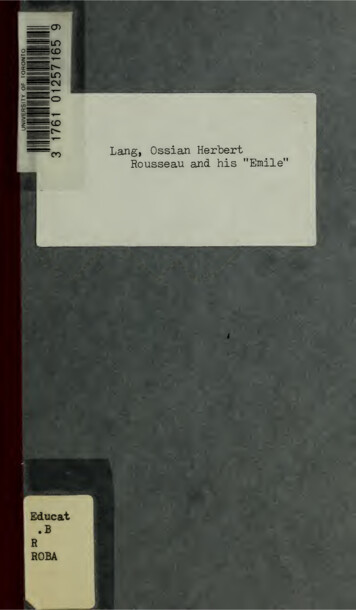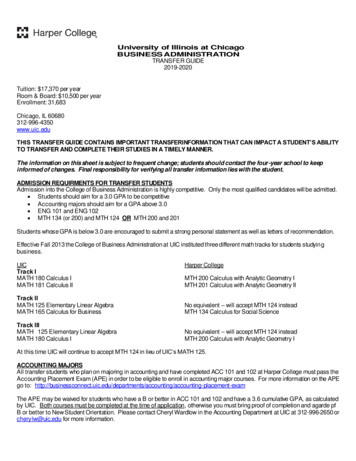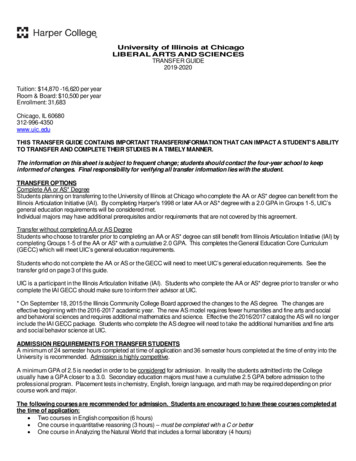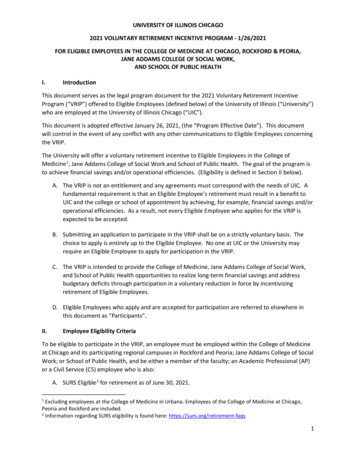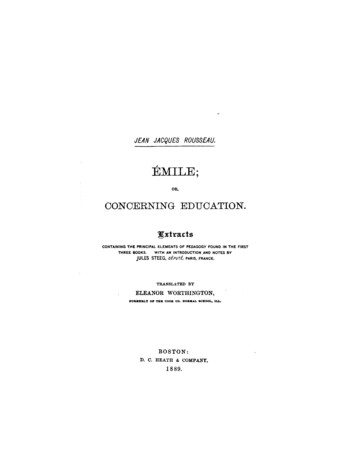
Transcription
JEAN JACQUES ROUSSEAU.EMILE;OR,CONCERNING EDUCATION.ExtractsCONTAINING T H E PRINCIPAL ELEMENTS O F PEDAGOGY F O U N D I N T H E FIRSTT H R E E BOOKS.W I T H AN I N T R O D U C T I O N .AND N O T E S B YJULES STEEG,DEPUTE,PARIS, F R A N C E .TRANSLATED BYELEANOR WORTHINGTON,FORMERLY OF THE COOK CO. NORMAL SCHOOL, I L L .BOSTON:D . C. H E A T H& COMPANY.1889.
Entered, according to Act of Congress, in the year 1883, byGINN, H E A T H , & CO.,I» the Office of the Library of Congress, at Washington.
TRANSLATOR'S"A/I"" T J .JULESSTEEGrhasrenderedFrench and Americanselections fromRousseau'sPREFACE.a realteachersSmile.Forserviceb y histhetojudiciousthree-volumenovel of a h u n d r e d y e a r s a g o , with its l o n g disquisitions a n dd i g r e s s i o n s , so d e a r t o t h e h e a r t of o u r p a t i e n t a n c e s t o r s ,is n o w d i s t a s t e f u l t o all b u t lovers of t h e c u r i o u s in b o o k s .' ' S m i l e " is like a n a n t i q u e m i r r o r of b r a s s ; it reflects t h ef e a t u r e s of e d u c a t i o n a l h u m a n i t y n o less faithfully t h a n o n eof m o r e m o d e r n c o n s t r u c t i o n .I n t h e s e few p a g e s will b ef o u n d t h e g e r m of all t h a t is useful in p r e s e n t s y s t e m s ofe d u c a t i o n , a s well as m o s t of t h e e v e r - r e c u r r i n g m i s t a k e s ofwell-meaning erfulb o o k h a v e for m a n y r e a d e r s t h e d i s a d v a n t a g e of a n E n g lish s t y l e l o n g d i s u s e d .I t is hopped t h a t t h i s a t t e m p t a t anew translation may, withallits d e f e c t s ,have theonem e r i t of b e i n g in t h e d i a l e c t of t h e n i n e t e e n t h c e n t u r y , a n dm a y t h u s r e a c h a w i d e r circle of r e a d e r s .
INTRODUCTION.JEAN" J A C Q U E S R O U S S E A U ' S book on education has had apowerful influence throughout Europe, and even in the NewWorld*- I t was in its day a kind of gospel.I t had its share inbringing about the Revolution which renovated the. entire aspectof our country.Many of the reforms so lauded by it have sincethen been carried into effect, and at this day seem every-dayaffairs.I n the eighteenth century they were unheard-of daring;they were mere dreams.Long before that time the immortal satirist Rabelais, and, afterhim, Michael Montaigne, had already divined the truth, hadpointed out serious defects in education, and the way to reform.No one followed out their suggestions, or even gave them ahearing.Routine went on its way.Exercises of memory,—thescience that consists of mere words, — pedantry, barren and vain glorious,—held fast their " b a d eminence." The child was treatedas a machine, or as a man in miniature,, no account being takenof his nature or of his real needs; without any greater solici tude about reasonable method — the hygiene of mind — thanabout the hygiene of the body.Rousseau, who had educated himself, and very badly at that,was impressed with the dangers of the education of his day. Amother having" asked" his advice, he took up the pen t o write i t ;and, little by little, his counsels grew into a book, "a large work,a pedagogic romance.
This romance, when it appeared in 1762, created a great noiseand a great scandal.The Archbishop of Paris, Christophe deBeaumont, saw in it a dangerous, mischievous work, and gavehimself the trouble of writing a long encyclical letter in orderto point out the book to the reprobation of the faithful.Thisdocument of twenty-seven chapters is a formal refutation of thetheories advanced in " E m i l e . "The archbishop declares that the plan of education proposedby the author, "far from being in accordance with Christianity,is not fitted to form citizens, or even men."He accuses Rous seau of irreligion and of - bad f a i t h ; he denounces him to thetemporal poweras animated " b y a spirit of insubordinationand of revolt."He sums up by solemnly condemning the book"as containing an abominable doctrine, calculated to overthrownatural law, and t a destroy the foundations of the Christianreligion; establishing maxims contrary to Gospel morality; hav ing a tendency to disturb the peace of empires, to stir up sub jects to revolt against their sovereign; as containing a greatnumber of propositions respectively false, scandalous, full of ha tred toward the Church and its ministers, derogating from therespect due to Holy Scripture and the traditions of the Church,erroneous, impious, blasphemous, and heretical."I n those days, such a condemnation was a serious m a t t e r ; itsconsequences to an author might be terrible.barely time toflee.Rousseau hadHis arrest was decreed by the parliamentof Paris, and his book was burned by the executioner.A fewyears before this, the author would have r u n the risk of beingburned with his book.As a fugitive, Rousseau did not find a safe retreat even inhis own country.H e was obliged to leave Geneva, where hisbook was also condemned, and Berne, where he hadsought
refuge, but whence he was driven by intolerance.to the protectionofH e owed itLord Keith, governor of Neufchatel, aprincipality belonging to the King of Prussia, that he lived forsome time in peace in the little town of Motiers in the Yal deTravers.I t was from this place that he replied to the archbishop ofParis by an apology, a long-winded work in which he repels,one after another, the imputations of his accuser, and sets forthanew with greater urgency his philosophical and religious prin ciples.This work, written on a rather confused plan but withimpassioned eloquence, manifests a lofty and sincere spirit.Itis said that the archbishop was deeply touched by it, and neverafterwardspoke of the authorof " E m i l e " withoutextremereserve, sometimes even eulogizing his character and his virtues.The renown of the book, condemned by so high an authority,was immense.Scandal, by attracting public attention to it,did it good service.W h a t was most serious and most sugges tive in it was not, perhaps, seized upon; but the " c r a z e " ofwhichit was the objecthad, notwithstanding, good results.Mothers were won over, and resolved to nurse their own infants;great lords began to learn handicrafts, like Rousseau's imagi nary pupil; physical exercises came into fashion; the spirit ofinnovation was forcing itself a way.I t was not among ourselves, however, that the theories ofRousseau were most eagerly experimented upon; it was amongforeigners, in Germany, in Switzerland, that they found moreresolute partisans, and a field more ready to receive them.Three men above all the rest are noted for having popularizedthe pedagogic method of Rousseau, and for having been inspiredin their labors by " E m i l e . "and Froehel.These were Basedow, Pestalozzi,
Basedow, a German theologian, had devoted himselfentirelyto dogmatic controversy, until the reading of " E m i l e " had theeffect of enlarging his mental horizon, and of revealing to himhis true vocation.He wrote important books to show howRousseau's method could be applied in different departments ofinstruction, and founded at Dessau, in 1774, an institution tobring that method within the domain of experience.This institution, to which he gave the name of " Philanthropinum," was secular in the true sense of the word; and at thattime this was in itself a novelty.I t was open to pupils ofevery belief and every nationality, and proposed to render studyeasy, pleasant, and expeditious to them, by following the direc tions of nature itself.I n the first rank of his disciples maybe placed Campe, who succeeded him in the management of thePhilanthropinum.Pestalozzi of Zurich, one of the foremost educators of moderntimes, also found his whole life transformed by the reading of"Emile," which awoke in him the genius of a reformer.himselfalso, in 1775, foundedHea school, in order to put inpractice there his progressive and professional method of teach ing, which was a fruitfuldevelopment of seeds sown by Rous seau in his book. Pestalozzi left numerous writings,—romances,treatises, reviews, — all having for sole object the popularizationof his ideas and processes ofeducation.The mostdistin guished among his disciples and continuators is Froebel, thefounder of those primary schools or asylums knownby thename of "kindergartens," and the author "of highly esteemedpedagogic wor.ks -These various attempts, these new and - ingenious processeswhich, step by step, have made their,, way among us, and arebeginning to make their workings felt, even in institutions most
stoutly opposed to progress, are all traceabletoRousseau's"Emile."I t is therefore not too much for Frenchmen, for teachers,for parents, for every one in our country who is interested inwhat concerns teaching,* to go back to the source of so great amovement.I t is true t h a t " E m i l e " contains pages that have outlivedtheir day, many odd precepts, many false ideas, many disputableand destructive theories; but at the same time we find in it somany sagacious observations, suchuprightcounsels, suitableeven to modern times, so lofty an ideal, that, in spite of every thing, we cannot read and study it without profit.There is noone who does not know the book by name and by reputation;but how many parents, and even teachers, have never read i t !This is because a large part of the book is no longer inaccordance with the actual condition of things; because its veryplan, its fundamental idea, are outside of the truth.obliged to exercise judgment, to make selections.must be taken, some left untouched.W e areSome of itThis is what we havedone in the present edition.W e have not, indeed, the presumption to correct Rousseau, orto substitute an expurgated " E m i l e " for the authentic " E m i l e . "W e have simply wished to draw the attention of the teachersof childhood to those pages of this book which have least grownold,.which can still be of service, can hasten the downfall of theold systems, can emphasize, by their energy and beauty of lan guage, methods already inaugurated and reforms already under taken.These methods and reforms cannot be too often recom mended and set in a clear light.W e have desired to call tothe rescue this powerful and impassioned writer, who brings to:bear upon every subject h e approaches the magical attractivenessof his style.
There is absolutely nothing practicable in his system.I t con sists in isolating a child from the rest of the world; in creatingexpressly for him a tutor, who is a phoenix among his k i n d ;in depriving him of father, mother, brothers, and sisters, hiscompanions in s t u d y ; in surrounding him with a perpetual char latanism, under the pretext of following nature; and in showinghim only through the veil of a factitious atmosphere the societyin which.he is to live.And, nevertheless, at each step it issound reason by which we are m e t ; by an astonishing paradox,this whimsicality is full of good sense; this dream overflowswith realities; this improbable and chimerical romance containsthe substance and the marrow of a rational and truly moderntreatise on pedagogy.Sometimes we must read between thelines, add what experience has taught us since t h a t day, trans pose into an atmosphere of open democracy these pages, writtenunder the old order of things, but even then quivering with thenew world which they were bringing to light, and for whichthey prepared the way.R e a d i n g ' " E m i l e " in the light of modern prejudices, we cansee in it more than the author wittingly put into i t ; but notmore than logic and the instinct of genius set down there.To unfold the powers of children in due proportion to theirage; not to transcend their ability; to arouse in them the senseof the observer and of the pioneer; to make them discoverersrather t h a n imitators; to teach them accountability to them selves and not slavish dependence upon the words of others; toaddress ourselves more to the will than to custom, to the reasonrather than to the memory; to substitute for verbal recitationslessons about t h i n g s ; to lead to theory by way of a r t ; to assignto physical movements and exercises a prominent place, fromthe earliest hours of life up to perfect m a t u r i t y ; such are the
principles scattered broadcast in this book, and forming a happycounterpoise to the oddities of which Rousseau was perhaps mostproud.He takes the child in its cradle, almost before its b i r t h ; hedesires that mothers should fulfil the sacred duty of nursingthem at the breast.If there must be a nurse, he knows howto choose her, how she ought to be treated, how she should befed.He watches over the movements of the new born child,:over its first playthings.All these counsels bear the stamp ofgood sense and of experience; or, rather, they result from apower of divination singular enough in a man who was notwilling to take care of his own children.I n this way, dayby day, he follows up the physical and moral development ofthe little being, all whose ideas and feelings he analyzes, whomhe guides with wisdom and with tact throughout the mazes ofa life made up of convention and artifice.Wehave carefully avoided suppressing thefictionsofthegardener and of the mountebank; because they are characteristicof his manner, and because, after all, these pre-arranged sceneswhich, as they stand, are anything in the world ratherthanreal teaching, contain, nevertheless, right notions, and opinionswhich may suggest to intelligent teachers processes in prudenteducation.Such teachers will not copy the form;they willnot imitate the awkward clap-trap; but, yielding to the inspi ration ofthe dominantidea, they will, ina way moreinaccordance with nature, manage to thrill with life the teachingof facts, and will aid the mind in giving birth to its ideas.This is the old methodofSocrates, the eternal method ofreason, the only method which really educates.W e have brought this volume to
Rousseau were most eagerly experimented upon; it was among foreigners, in Germany, in Switzerland, that they found more resolute partisans, and a field more ready to receive them. Three men above all the rest are noted for having popularized the pedagogic method of Rousseau, and for having been inspired in their labors by "Emile." These were .
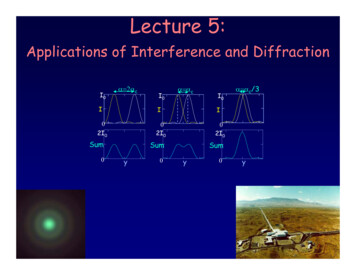
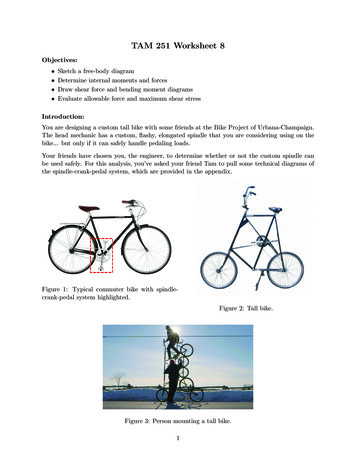
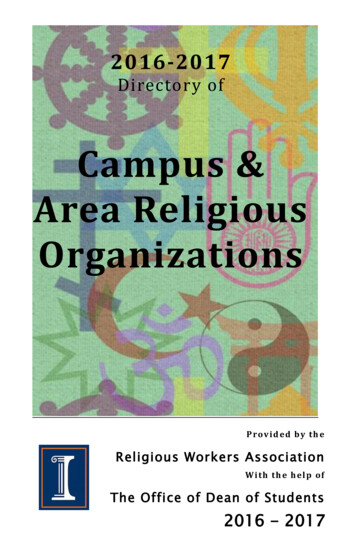
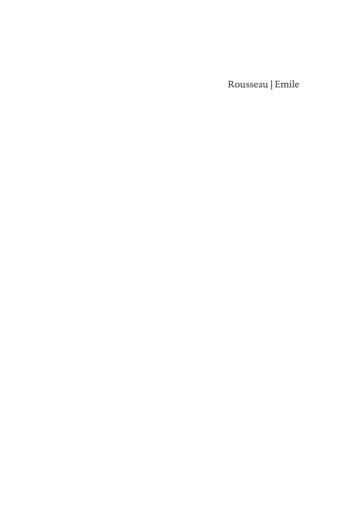
![Emile [Book 1] - SOPHIA PROJECT](/img/6/rousseau-emile1.jpg)
